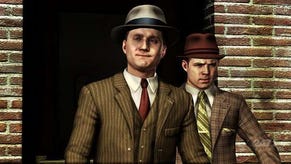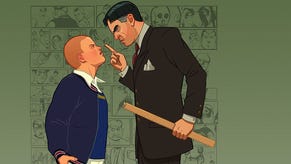Team Bondi feature describes reported working conditions during L.A. Noire development
IGN has an excellent feature posted on the trials and tribulations Team Bondi went through to get L.A Noire out the door, and it also brings more to light regarding the reported issues surrounding the departure of frustrated staff.
In the feature, one of the former programmers described Team Bondi founder Brendan McNamara as "the angriest person" he'd ever met stating: "It's one thing for him to be angry behind closed doors, but it was incredibly common for him to scream at whoever was p**sing him off in the middle of the office."
While such a comment could be shrugged of as the words of a disgruntled employee, McNamara made no apologies to IGN, and confirmed that he see arguments as part of the deal.
"Am I passionate about making the game? Absolutely," he said. "Do you think that I'm going to voice my opinion? Absolutely. But I don't think that's verbal abuse."
Back in March 2007, Leading Teams, a corporate team-building firm, was hired to speak with employees regarding their discontent along with the high turnover rate the firm was experiencing. According to a source speaking with IGN, some employees were comfortable discussing what they were upset over, but others were afraid if they aired any grievances, they would face negative requital. contribute to the sessions.
According to the source, the atmosphere around the studio was a bit more positive for a while after the two Leading Teams assessments, but it was not to last.
"One of the outcomes was the requirement that Brendan had to sit isolated from everyone else, but that just made it worse, since he would then pace back and forth all day, bothering people even more," described a former programmer for Team Bondi.
When McNamara was asked if he took any feedback to heart when the employees aired their concerns and complaints to him in one of the monitored sessions, he replied: "I don't know. It was 2007."
"I'm not in any way upset or disappointed by what I've done, and what I've achieved," he said. "I'm not even remotely defensive about it. I think, if people want to do what I've done – to come here and do that – then good luck to them. If people who've left the company want to go out there and have some success, then good luck to them.
"If they don't want to do that with me, that's fine, too. It's like musical differences in a rock and roll band, right? People say they do want to do it; some don't."
The above is just one snippet from the feature, and it goes on to explain the long working hours the former employees had complained about in previous weeks. McNamara insists that working hours were compensated for, and that he would not ask anyone to work any more than he did himself.
Again, this is an excellent feature, and it is well worth the read.









